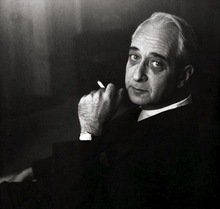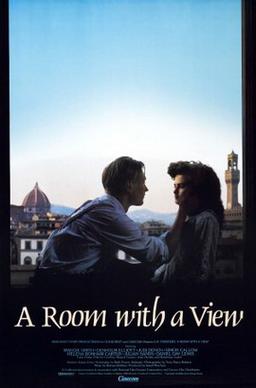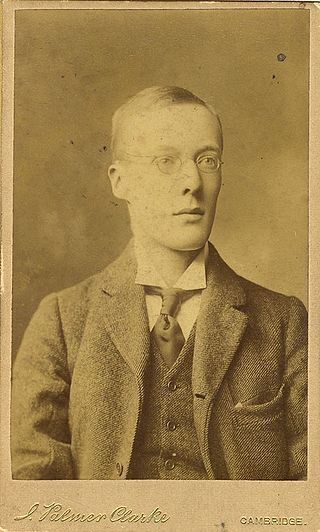
Edward Morgan Forster was an English author, best known for his novels, particularly A Room with a View (1908), Howards End (1910) and A Passage to India (1924).

A Room with a View is a 1908 novel by English writer E. M. Forster, about a young woman in the restrained culture of Edwardian-era England. Set in Italy and England, the story is both a romance and a humorous critique of English society at the beginning of the 20th century. Merchant Ivory produced an award-winning film adaptation in 1985.

William Wilkie Collins was an English novelist and playwright known especially for The Woman in White (1859), a mystery novel and early sensation novel, and for The Moonstone (1868), which established many of the ground rules of the modern detective novel and is also perhaps the earliest clear example of the police procedural genre.

San Gimignano is a small walled medieval hill town in the province of Siena, Tuscany, north-central Italy. Known as the Town of Fine Towers, San Gimignano is famous for its medieval architecture, unique in the preservation of about a dozen of its tower houses, which, with its hilltop setting and encircling walls, form "an unforgettable skyline". Within the walls, the well-preserved buildings include notable examples of both Romanesque and Gothic architecture, with outstanding examples of secular buildings as well as churches. The Palazzo Comunale, the Collegiate Church and Church of Sant' Agostino contain frescos, including cycles dating from the 14th and 15th centuries. The "Historic Centre of San Gimignano" is a UNESCO World Heritage Site. The town also is known for saffron, the Golden Ham, pecorino cheese and its white wine, Vernaccia di San Gimignano, produced from the ancient variety of Vernaccia grape which is grown on the sandstone hillsides of the area.

Maurice is a novel by E. M. Forster. A tale of homosexual love in early 20th-century England, it follows Maurice Hall from his schooldays through university and beyond. It was written in 1913–1914 and revised in 1932 as well as 1952–1960. Forster was an admirer of the poet, philosopher, socialist, and early gay rights activist Edward Carpenter and, following a visit to Carpenter's home at Millthorpe, Derbyshire in 1913, was inspired to write Maurice. The cross-class relationship between Carpenter and his working-class partner, George Merrill, presented a real-life model for that of Maurice and Alec Scudder.
"The Machine Stops" is a science fiction short story by E. M. Forster. After initial publication in The Oxford and Cambridge Review, the story was republished in Forster's The Eternal Moment and Other Stories in 1928. After being voted one of the best novellas up to 1965, it was included that same year in the populist anthology Modern Short Stories. In 1973 it was also included in The Science Fiction Hall of Fame, Volume Two.

Lionel Mordecai Trilling was an American literary critic, short story writer, essayist, and teacher. He was one of the leading U.S. critics of the 20th century who analyzed the contemporary cultural, social, and political implications of literature. With his wife Diana Trilling, whom he married in 1929, he was a member of the New York Intellectuals and contributor to the Partisan Review.

Billy Budd, Op. 50, is an opera by Benjamin Britten to a libretto by the novelist E. M. Forster and Eric Crozier, based on the short novel Billy Budd by Herman Melville. Originally in four acts, the opera received its premiere at the Royal Opera House (ROH), London, on 1 December 1951. Britten later revised the work into a two-act opera, with a prologue and an epilogue. The revised version received its first performance at the ROH, Covent Garden, London, on 9 January 1964.

The Longest Journey is a bildungsroman by E. M. Forster, first published in 1907. It is the second of Forster's six published novels, following Where Angels Fear to Tread (1905) and preceding A Room with a View (1908) and Howards End (1910). It was Forster’s favourite among his own novels.

Howards End is a novel by E. M. Forster, first published in 1910, about social conventions, codes of conduct and relationships in turn-of-the-century England. Howards End is considered by many to be Forster's masterpiece. The book was conceived in June 1908 and worked on throughout the following year; it was completed in July 1910.

A Room with a View is a 1985 British romance film directed by James Ivory and produced by Ismail Merchant. It is written by Ruth Prawer Jhabvala, who adapted E. M. Forster's 1908 novel A Room with a View. Set in England and Italy, it is about a young woman named Lucy Honeychurch in the final throes of the restrictive and repressed culture of Edwardian England and her developing love for a free-spirited young man, George Emerson. Maggie Smith, Denholm Elliott, Daniel Day-Lewis, Judi Dench and Simon Callow feature in supporting roles. The film closely follows the novel by the use of chapter titles to distinguish thematic segments.

Where Angels Fear to Tread is a 1991 British drama film directed by Charles Sturridge and starring Helena Bonham Carter, Judy Davis, Rupert Graves, Giovanni Guidelli, Barbara Jefford, and Helen Mirren. The screenplay by Sturridge, Tim Sullivan, and Derek Granger is based on the 1905 novel of the same name by E. M. Forster.

Edward Joseph Dent, generally known as Edward J. Dent, was an English musicologist, teacher, translator and critic. A leading figure of musicology and music criticism, Dent was Professor of Music at the University of Cambridge between 1926 and 1941.

Where Angels Fear to Tread is the fifth studio album by the rock band Mink DeVille. It was released in 1983, and was the second album Mink DeVille recorded for Atlantic Records, and Atlantic brought in two in-house producers, Howard Albert and Ron Albert, to produce the album.

The Marabar Caves are fictional caves which appear in E. M. Forster's 1924 novel A Passage to India and the film of the same name. The caves are based on the real life Barabar Caves, especially the Lomas Rishi Cave, located in the Jehanabad District of Bihar, India which Forster visited during a trip to India.

Rooks Nest House is a house on Weston Road, Stevenage, Hertfordshire. It was the childhood home of the author E. M. Forster (1879–1970) who described it in the novel Howards End. It is Grade I listed for its historical interest and literary associations.
Duane Adolph Moody is an American tenor solo artist and also a member of the African-American trio Three Mo' Tenors. In addition to performing, he is an associate professor teaching voice at Berklee College of Music and former instructor and coach with the Levine School of Music in Washington DC.
Where Angels Fear to Tread is a 1905 novel by E. M. Forster.
"Chiantishire" is the eighth episode of the third season of the HBO satirical comedy-drama television series Succession, and the 28th overall. It was written by series creator Jesse Armstrong and directed by Mark Mylod, and aired on December 5, 2021.














